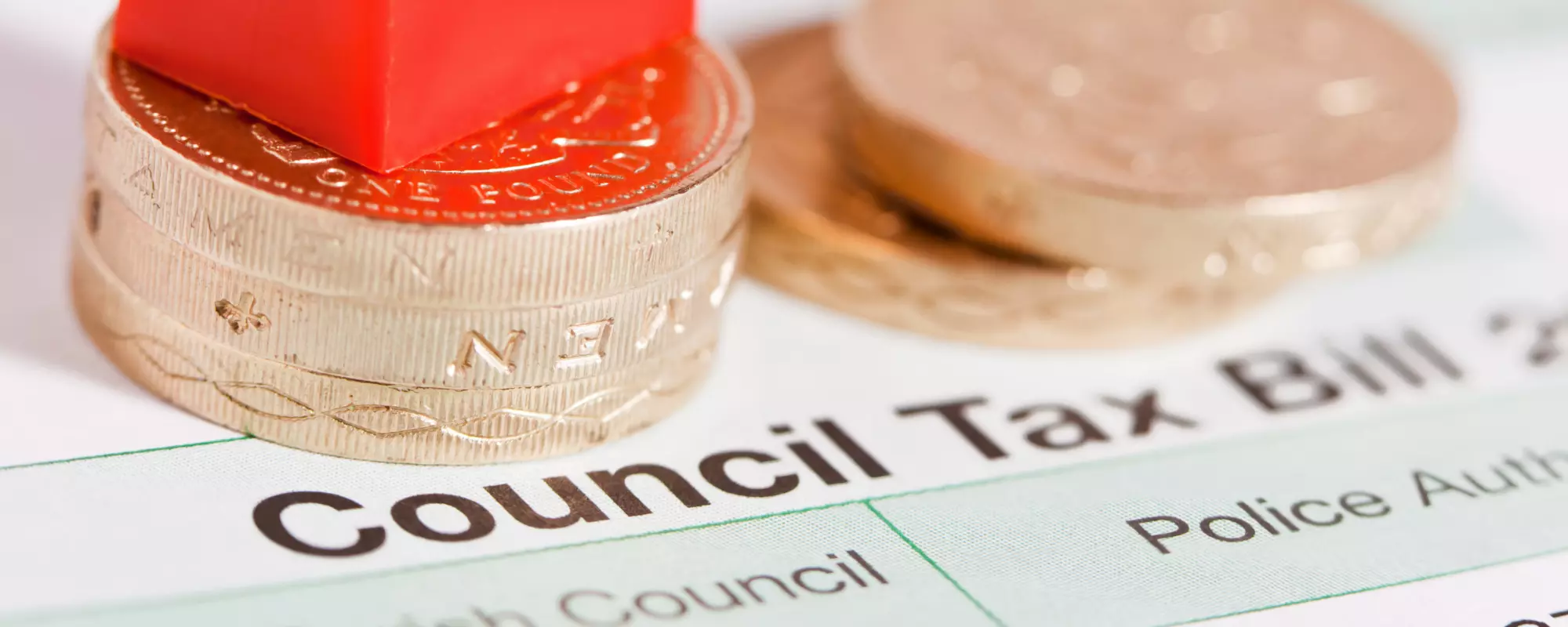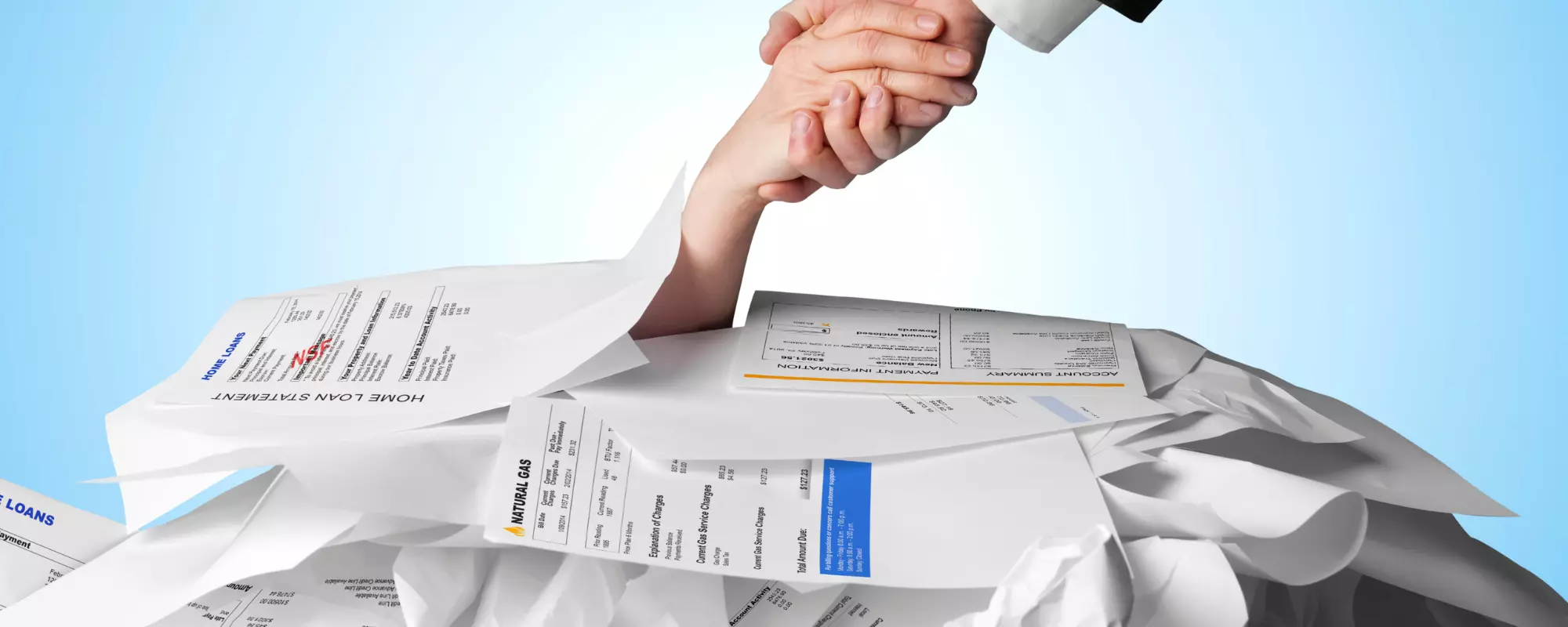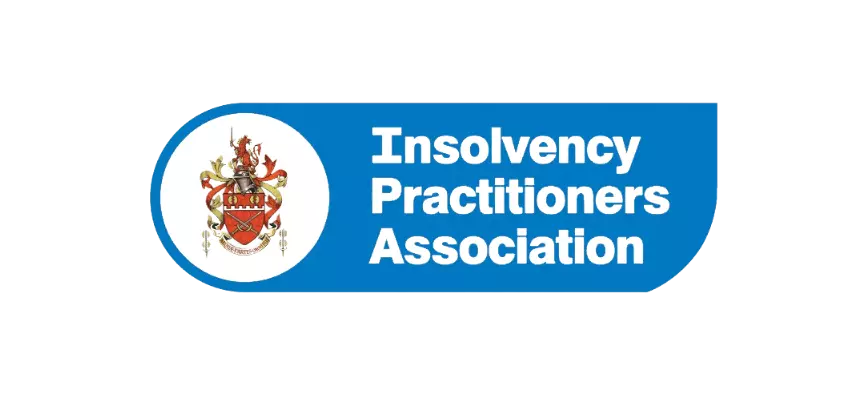Are you struggling with debt and worried about the potential arrival of bailiffs at your doorstep?
You’re not alone, and it’s a daunting situation for anyone.
However, there are solutions that can potentially provide relief and stop enforcement agents before they arrive to your property.
One such solution is an Individual voluntary arrangement, or more commonly known as an IVA.
Whether it is council tax debts and other forms of legal action, an Individual Voluntary Arrangement (IVA) could be a viable solution for you.
In this article we’ll discuss how an IVA can stop action from unsecured debts, such as debt collectors calls and bailiff action.
From understanding how IVAs work, to other advantages by undertaking such as solution. This article discusses everything you need to know around IVAs and the bailiff process.
Understanding IVAs and Their Impact on Bailiffs

An Individual Voluntary Arrangement (IVA) is a legally binding agreement between a debtor and their creditors.
It allows the debtor to combine all their debts into an affordable payment and freeze interest and charges. Any debt remaining at the end of the agreement is written off.
Another of the many benefits of an IVA (and probably why you’re reading this article) is its ability to stop bailiffs from taking action against you.
But how does it achieve this?
Consolidating your debts and establishing a manageable repayment plan through an IVA prevents bailiffs from forcefully entering your home and shields you from legal actions.
However, if a bailiff continues to contact you after your IVA has been approved, there’s no need to panic.
Simply provide them with a copy of the IVA proposal and the Chairmans report from the decision procedure.
This will inform them to suspend any imminent action, including those from a high court enforcement officer.
How an IVA works
As a formal and legally binding agreement, an IVA allows a repayment of a portion of your debts over a fixed period, typically 5 or 6 years.
Setting up an IVA requires the preparation of documentation by a licensed insolvency practitioner, who serves as a middle man between you and your creditors.
They will help you create a repayment plan based on your current financial circumstances, which will be presented to your creditors in what is called an IVA proposal.
Once the IVA proposal is approved by creditors, you will make a single monthly payment to the insolvency practitioner, who will then distribute the funds to your creditors on your behalf.
Crucially, as an IVA is a legally binding arrangement, once approved, it prevents any further legal action from Bailiffs and debt collectors.
This is on the provision you adhere to the IVA requirements.
Benefits of IVA for debtors
An IVA offers several advantages for people struggling with debt.
Fundamentally, an IVA serves as a lifeline for individuals grappling with debt problems and the looming threat of bailiffs from common companies such as Newlyn, Marston and Dukes.
So what are the benefits of an IVA for people in debt?
First and foremost, it helps manage debts by consolidating your unsecured debts into one monthly payment, making it easier to manage your financial expenses.
Secondly, the IVA will freeze interest and charges on your debts. This prevents any additional fees from accruing during your repayment period.
And most importantly (and probably why you are reading this article), once you have entered an IVA it provides protection from legal action, as creditors cannot take any additional action against you while the IVA is active, such as warrants of control.
This means that bailiffs cannot visit your home or seize your belongings as long as you are keeping up with payments of the IVA plan.
And finally, another significant benefit of an IVA is the potential to write off a portion of your unsecured debt, including unsecured loans, upon completion of the arrangement.
This can provide you with a fresh start, free from the weight of debt, and help you regain control of your financial life.
IVA and Council Tax Debts

Council tax debt is a common debt that if left unpaid, is followed up by debt collection letters and the threat of enforcement action in the form of bailiffs.
This is because they are considered priority debts. This means there are serious repercussions of non-payment, and the council can take legal action to demand the amounts owed.
Tackling council tax debts when bailiff early is key to preventing further complications where help can no longer be accessed.
An IVA can be a lifesaver when it comes to dealing with council tax debt.
It allows you to:
Include your council tax arrears in your monthly repayment plan
It enables you to avoid legal action, and protect yourself from further action
Potentially write off a percentage of your council tax debt
Priority of Council Tax Arrears
Council tax arrears are considered priority debts because local authorities have increased legal powers to collect them.
These powers include sending reminder letters, issuing liability orders, and employing bailiffs to collect the debt.
As a result if you’re unable to pay all your debts such as loans and credit cards, it’s essential to prioritise your council tax arrears over these other debts.
Prioritising your council tax debt is crucial in managing your finances and avoiding severe consequences.
Being proactive in paying off your council tax debts, either through an IVA or other means, can help you avoid the stress and financial worries caused by bailiff visits and potential legal actions.
Legal Actions Stopped by IVA

An IVA is a powerful tool that can stop various legal actions, such as looming County Court Judgments (CCJs) and bankruptcy petition orders.
With a structured repayment plan agreed upon by both the debtor and creditors, an IVA creates a more viable way of clearing your debt.
An IVA, with its ability to halt legal actions, provides the breathing space you need to concentrate on debt repayment and financial stability restoration.
This protection from legal actions is one of the many reasons why an IVA can be an effective solution for those struggling with debt and facing the prospect of bailiffs or legal action.
Dealing with CCJs
A County Court Judgment (CCJ) is a court order issued when an individual takes legal action against another for unpaid debt, and the latter fails to respond.
A County Court Judgment can have a detrimental effect on your credit and your future plans.
However, an IVA can help you deal with CCJs by including them in your repayment plan and stopping legal actions.
Incorporating CCJs into your IVA offers the following benefits:
Reduction in overall unsecured debt payments
Avoidance of further legal action
Relief from the stress of dealing with CCJs
Ability to focus on repaying debts and rebuilding financial stability.
Avoiding bankruptcy
Bankruptcy is a formal insolvency procedure that allows an individual to have their debts written off.
It is an extreme measure and should only be considered in the most dire of circumstances.
Alternatively, an IVA aids in averting bankruptcy through debt consolidation and the provision of a manageable repayment plan.
By entering into an IVA, you can significantly reduce the risk of bankruptcy and its negative consequences on your credit and financial future.
This makes IVA an attractive alternative for those who owe money and are seeking to regain control of their finances without resorting to measures such as bankruptcy.
Want to find out more about how PennyPlan can help you with your debt?
Rights and Limitations of Bailiffs

Knowing the rights and limitations of bailiffs plays a crucial role in safeguarding yourself and your property against enforcement agent efforts.
Bailiffs, also known as enforcement agents, are individuals who have been appointed to collect payment owed to a company, council, court, or person.
Knowing what they can and cannot do can help you manage the situation and minimise the impact of their actions on your life.
This section will explore the entry rights of bailiffs and the items they are allowed to remove.
By familiarising yourself with these rights and limitations, you can better protect yourself and your assets when faced with bailiff action.
Entry rights of bailiffs
Bailiffs have limited rights to enter your home and can only do so with your permission or if a door is left open.
When bailiffs arrive on their first visit, they are not allowed to force entry and must attempt a peaceful entry before resorting to force.
It is crucial to understand these entry rights to ensure that you do not unknowingly grant bailiffs access to your home or belongings.
If you are unsure of a bailiff’s identity or their right to enter your home, it is advisable to verify their identification and check their certification.
All agents should provide their credentials in what is called an enforcement agent certificate.
By understanding and asserting your rights, you can protect your home and belongings from unnecessary stress and intrusion.
Items bailiffs can seize
Bailiffs can only seize items that are not deemed essentials.
This means things required for day-to-day living are off limits.
Basic necessities, such as washing machines, beds, and kitchen appliances, are protected from seizure.
However, items such as cars, bikes, and televisions are all deemed as luxury goods that can be seized to recover to recoup money owed.
Knowing what items bailiffs can and cannot seize is crucial in protecting your belongings and ensuring that you maintain a reasonable standard of living during the debt collection process.
If you’re anxious about bailiff action, speak to our team today. Our team have extensive experience with all bailiffs, including Dukes, Marstons , Whyte & co and more.
Steps to Take When Facing Bailiffs

Faced with bailiffs, adopting the right steps to handle the situation and safeguard your property is paramount.
By verifying the identity of bailiffs, negotiating with them, and seeking professional advice, you can better manage the process and minimise the impact of their actions on your life.
The subsequent subsections will set out specific measures to adopt when interacting with bailiffs.
By following these guidelines, you can ensure that you are prepared to handle any encounters with bailiffs and work towards resolving your debts in a manageable and sustainable manner.
Verifying bailiff identity
The first step to take when facing bailiffs is to verify their identity.
Here’s what you can do:
Ask for their identification card or proof of identity.
Check it carefully for accuracy.
If you have any doubts or concerns, contact the relevant authority or agency to confirm their identity.
By verifying the identity of bailiffs, you ensure that you are dealing with a legitimate enforcement agent and avoid falling victim to scams or fraud.
This is an essential step in protecting yourself and ultimately your belongings during the debt collector process.
Negotiating with bailiffs
Once you have verified the identity of the bailiff, it’s time to negotiate with them.
Explain your circumstances and try to reach an agreement on a payment plan that works for both parties.
If you have an IVA in place, provide the bailiff with a copy of the IVA proposal and the Chairmans report from IVA approval, as this will inform them to suspend any imminent action.
By negotiating with bailiffs and providing relevant documentation, you can help to manage the situation and prevent further stress by receiving further contact from debt collectors.
This can give you the breathing space you need to focus on repaying your owed money and rebuilding your financial stability.
Seeking professional advice

Seeking professional debt advice is a crucial step in dealing with bailiffs and managing your debts.
These debt professionals can provide you with comprehensive free debt advice and confidential information, guiding you through all available options to assisting you on your journey to financial freedom.
Seeking professional advice gives you access to accurate and reliable information, guidance, and solutions to complex issues or situations you may find yourself in.
This can help you make informed decisions, avoid costly mistakes, and achieve your desired results.
Facing bailiff action can be a daunting experience, and seeking professional advice can be invaluable in helping you get the assistance you need to regain control of your financial life.
Want to find out more about how PennyPlan can help you with your debt?
Alternatives to IVA for Debt Relief
Though an IVA can be a viable solution for many individuals suffering from bailiffs for debts such as council tax, it’s crucial to assess all options available to you.
Other debt solutions that could be available to you for debt relief include;
Debt Management Plan (DMP)
Debt Relief Orders (DRO)
Bankruptcy
Each of these options has its own set of benefits and drawbacks, and it’s essential to explore all possibilities before deciding on the best course of action for your unique situation.
Debt Management Plans
Debt Management Plans (DMPs) involves a third party negotiating with your creditors to reduce your monthly payments and attempt to freeze interest rates on your debts.
A DMP can be a useful option for managing your debts if you’re struggling to keep up with your current repayments.
By appointing a debt management company, you can create a more affordable debt payment plan that allows you to pay off your sums owed at a pace that works for you.
However, it’s important to be aware of the potential risks associated with DMPs.
For example it may take longer to pay off your debts, and if you fail to keep up with the agreed terms, creditors may pursue legal action against you.
Be sure to read up on the pros and cons of a DMP before deciding if it’s the right solution for your debt problems.
Debt Relief Orders
Debt Relief Orders (DROs) are a formal debt solution for individuals with a low income and limited assets.
If your finances don’t improve after the 12 month period, a DRO can discharge or write off your debts.
To be eligible for a DRO, you must;
Owe no more than £30,000
Not be a homeowner
Have limited assets under £2,000.
DROs can provide significant relief from debt repayments for people who qualify, however eligibility requirements must be met.
It is also important to consider the pros and cons of a DRO, and whether it matches your current and future circumstances.
Bankruptcy
Bankruptcy is often considered a last resort option for debt relief that involves the sale of your assets to repay your debts and start fresh financially.
While bankruptcy can provide a clean slate it is essential to understand its potential consequences.
Before considering bankruptcy, it is vital to compare all other debt relief options and seek professional debt advice.
This ensures that you’re making the best decision for your financial future.
Want to find out more about how PennyPlan can help you with your debt?
The IVA Process: From Proposal to Completion

Although the IVA process might appear intimidating, speaking to an insolvency practitioner who can break down the various phases can make the journey a lot less daunting.
From preparing initial advice to understand all options available to you, to preparing your IVA proposal to get creditor approval, your IVA provider can help take the burden off you whilst you are in the midst of dealing with the debt stress caused by your circumstances.
In short, the IVA process is designed to give you a clearer path to managing your debts with a structured and manageable payment plan that allows you to tackle your debts in a reasonable timeframe.
This concluding section will guide you through the IVA process, highlighting the significance of collaborating with an insolvency practitioner, securing creditor approval, and fulfilling your obligations during the repayment term.
By following these steps, you can take control of your financial future and work towards becoming debt-free.
Preparing the IVA proposal
To kick off the IVA process, you’ll need to work with an insolvency practitioner to prepare your IVA proposal.
This proposal will outline the repayment plan and terms that you and your creditors will agree upon, and it’s crucial to ensure that it accurately reflects your financial circumstances and your ability to repay your debts.
Working closely with an insolvency practitioner allows you to create a proposal that is fair and achievable for both you and your creditors.
This will set the foundations for a successful IVA plan and help you regain control of your financial life.
Gaining creditor approval
Once your IVA proposal has been prepare, it will now be presented to your creditors who will vote on whether to accept it during your creditors meeting.
For the proposal to be approved, the majority of creditors must agree to its terms.
If approved your IVA will be put in place, and you can begin making payments in accordance with the IVA agreement.
Gaining creditor approval is obviously a major step in the IVA process, as it ensures that all parties are in agreement with the repayment plan.
Presenting a well-prepared and factual proposal is vital to obtaining the necessary support from your creditors, which allows approval of your IVA and the beginning of a brighter financial future.
Meeting IVA obligations
During the IVA repayment period it’s important you continue to meet the obligations of the IVA agreement.
This includes making regular IVA payments, supplying or returning any additional documentation requested, and notifying your insolvency practitioner of any changes in your circumstances.
Remember, if you have committed to an IVA to combat debt collector contact or notice of enforcement action, you could be vulnerable to the same entities if you your IVA fails.
By staying committed to your IVA and fulfilling your responsibilities, you can achieve a successful outcome and become debt-free.
Want to find out more about how PennyPlan can help you with your debt?
Can an IVA stop bailiffs? – Summary
In conclusion, dealing with bailiffs and managing debts can be a challenging and stressful experience.
An IVA can be a powerful way to stop bailiffs and notice of enforcement action in their tracks, whilst helping you consolidate other unsecured debts into one repayment.
It can help stop bailiffs who are trying to seize goods for organisations such as council tax, HM revenue or court fines.
The arrangement also has the benefits of freezing interest and charges, whilst allowing you to write off a portion of unaffordable debt.
Bear in mind however, that if the IVA is not adhered to and the arrangement fails, then you are back to being vulnerable to the same powers that were chasing previously.
Even if you decided an IVA is not for you, we hope we have provided you with some valuable information in how to deal with bailiffs and know your rights.
The key is to stay as much informed as possible, taking prompt action when faced with bailiffs, and seek professional debt advice to ensure you’re making the best decisions for your financial future.
By doing so, you can turn tackle bailiff action and concentrate on your debt situation with more clarity, and plan for a better financial future.
Need IVA Advice? Speak to PennyPlan

We understand that debt is not the only issue that needs addressing when dealing with bailiffs and enforcement agents.
More often than not, your mental health can become as much of a concern as the debt itself.
And that’s where our IVA plans differ from every other practitioner.
Our IVAs not only prevent further legal action such as the seizing goods or other bailiff actions, they also provide FREE mental wellbeing sessions that can assist you in coping with the understandable distress these situations can cause.
Our team are regulated by the Insolvency Practitioners Association, and can administer Individual Voluntary Arrangements from the initial free debt advice, to managing the plan for its duration.
Speak to our confidential, non-judgmental debt advisors today and start your path to debt freedom.
Frequently Asked Questions
Does an IVA protect you from bailiffs?
Yes, an IVA can effectively protect you from bailiffs. As a legally binding agreement, once approved it prevents creditors from taking further legal action.
Additionally, with the exception of unpaid court fines, student loans and child support, an insolvency practitioner will contact the bailiffs to stop any action upon approval of the IVA.
Will bailiffs accept a payment plan?
It is possible to negotiate a payment plan with bailiffs, though they do not have to accept your offer.
You should try to pay what you can afford in weekly or monthly payments and make sure to get a receipt to prove your payment.
If you cannot pay all the money right away, you may be required to enter into a controlled goods agreement, including paying some bailiff fees.
Can an IVA write off council tax debt?
Yes, it is possible to include your council tax arrears in an Individual Voluntary Arrangement (IVA) proposal.
An IVA writes off any unaffordable debt at the end of the term, including council tax.
How does an IVA work?
An Individual Voluntary Arrangement (IVA) is a legally binding agreement between you and your creditors which requires you to make affordable monthly payments for typically 5 or 6 years.
The agreement freezes interest and charges over its duration. Any remaining debt at the end of the arrangement is deemed ‘unaffordable’ and is written off.
Want to find out more about how PennyPlan can help you with your debt?







